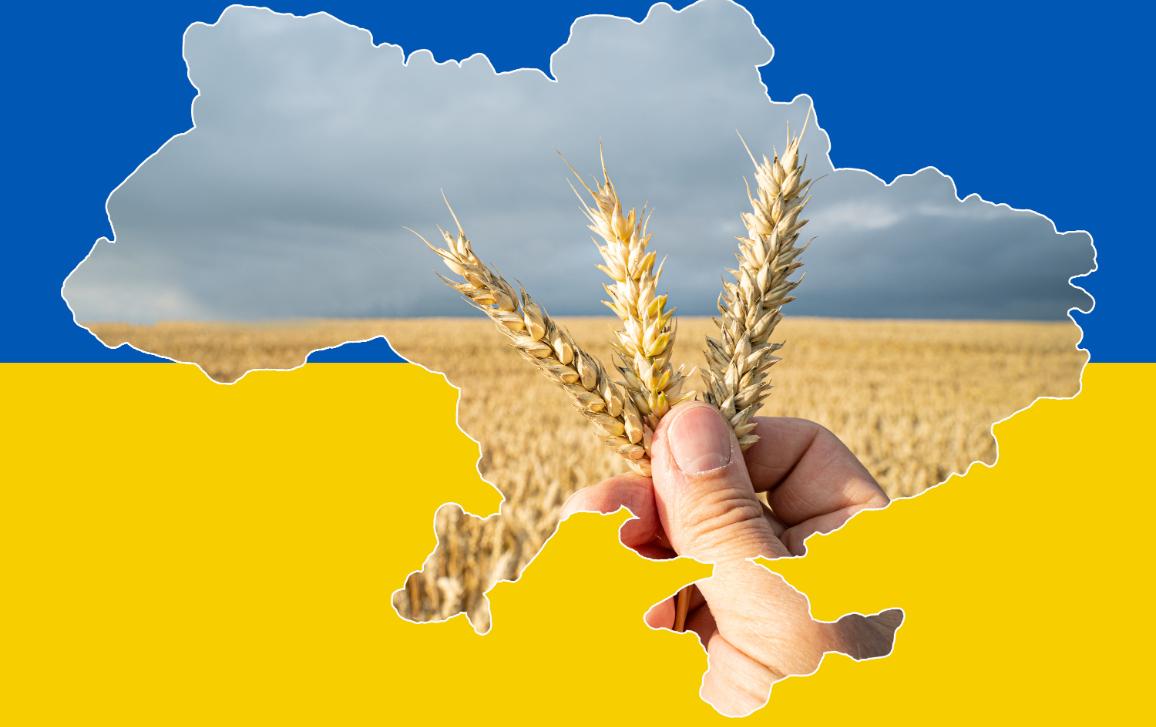Ukraine’s farmers fear the worst after grain deal collapses

Farmers whose work on Ukraine’s fertile land has long been vital to its economy fear losing their livelihoods after Russia this week quit a wartime deal allowing the safe Black Sea export of grain.
For Kees Huizinga, who moved from his native Netherlands to farm in central Ukraine in 2003, Moscow’s refusal to extend the deal makes his finances, already squeezed by Russia’s invasion last year, appear catastrophic.
“We have some reserves so we can survive for a month or so, but if we can’t sell it’s going to be a disaster,” he told Reuters at his 15,000-hectare farm in a village in the rolling hills and green flat plains of the Cherkasy region in central Ukraine.
Ukraine is a major exporter of grains and sunflower oil, including to Middle Eastern and African nations. The deal brokered by the United Nations and Turkey in July 2022 was designed to enable Ukraine to export grain via the Black Sea despite a Russian blockade and to combat a global food crisis.
Agricultural exports are crucial for Ukraine’s economy, making up about 12% of gross domestic product before Russia’s invasion in February 2022 and about 60% of all exports.
Of the 60,000 tons of produce grown on Huizinga’s land last year, 50,000 tons was sent abroad through the grain deal.
In total, Ukraine has been able to export 33 million tons of agricultural products through the deal.
Huizinga said exporting the same volume of his produce won’t be possible without the Black Sea initiative which, according to an industry association, was used for up to 90% of Ukraine’s pre-war agricultural exports.
The Dutchman, who grows seven major crops including wheat and sunflowers, estimates war-related disruption cost his business between $3 and $6 million in 2022, and could cost it another $6 million this year.
He said he was getting about $100 a ton for his barley, half the price that western European farmers would receive, and that his transportation costs had risen sharply.
Huizinga, who came to Ukraine from his family’s farm near the Dutch city of Groningen, has already been forced to take out loans to cover his expenditure.
“Some farmers who have more reserves will last longer, and those farmers who have less reserves will probably have to sell or close down the business, or give it to somebody else,” he said.
The main remaining route for agricultural produce out of Ukraine is the Danube river, which runs along Ukraine’s southwestern border with Romania.
Some of Ukraine’s western neighbours have restricted imports of Ukrainian grain under pressure from their farmers, who said they were suffering from the added competition.
Denys Marchuk, deputy head of the Ukrainian Agrarian Council, the country’s largest agribusiness organisation, has estimated that Ukraine’s Danube ports can carry up to 3 million tons a month, nowhere near enough to cover its export potential.
Ukraine expects to harvest 44 million tons of grain this year, down from a record 86 million-ton harvest in 2021.
One of Huizinga’s farm workers, Yuriy, recently drove a fresh harvest of barley down to storage in Izmail, a southern town where one of the river ports is situated.
He said the storage operators were stunned to see 2023 barley arriving, as they still had a huge stockpile of last year’s crop which had not yet been shipped.
Both Marchuk and Huizinga believe grain shipments should continue through the Black Sea even without Russia’s participation in the deal. The U.N. has said ideas are being floated to try to help get Ukrainian grain to global markets.
“I think they (Russia) are bluffing, they are playing poker on a very high level and trying to influence the Western leaders somehow, and we shouldn’t let this happen,” Huizinga said.
Read also
Wheat in Southern Brazil Impacted by Dry Weather and Frosts
Oilseed Industry. Leaders and Strategies in the Times of a Great Change
Black Sea & Danube Region: Oilseed and Vegoil Markets Within Ongoing Transfor...
Serbia. The drought will cause extremely high losses for farmers this year
2023/24 Safrinha Corn in Brazil 91% Harvested
Write to us
Our manager will contact you soon



